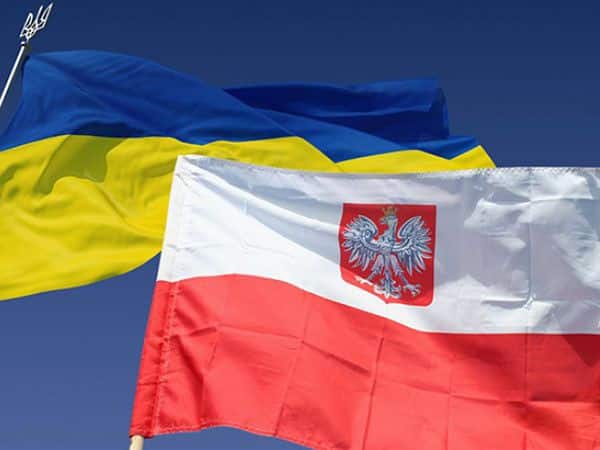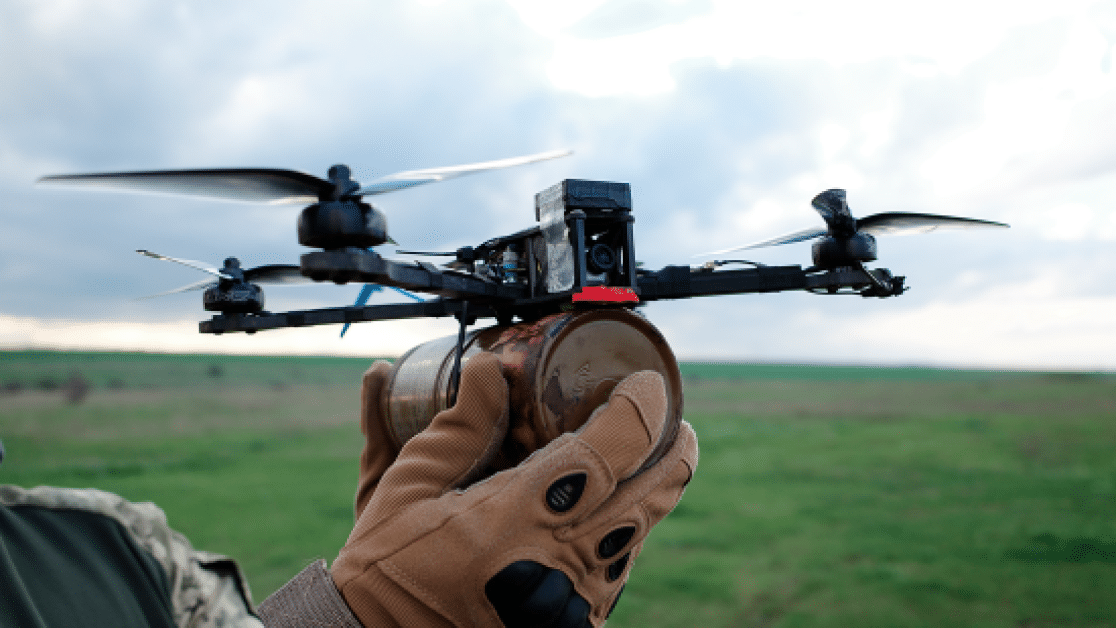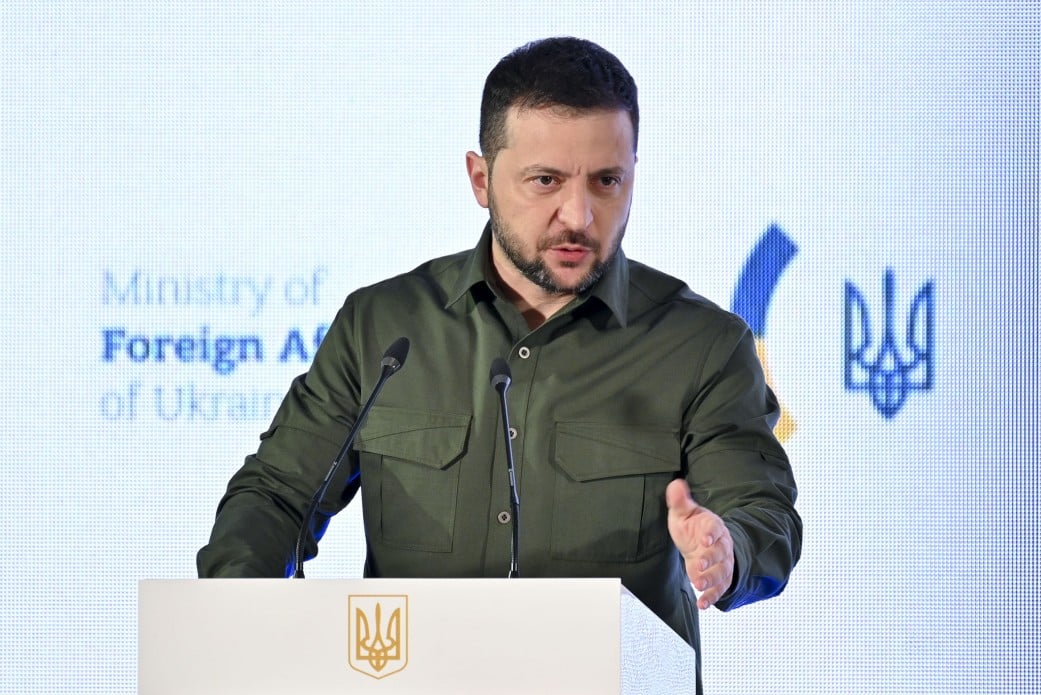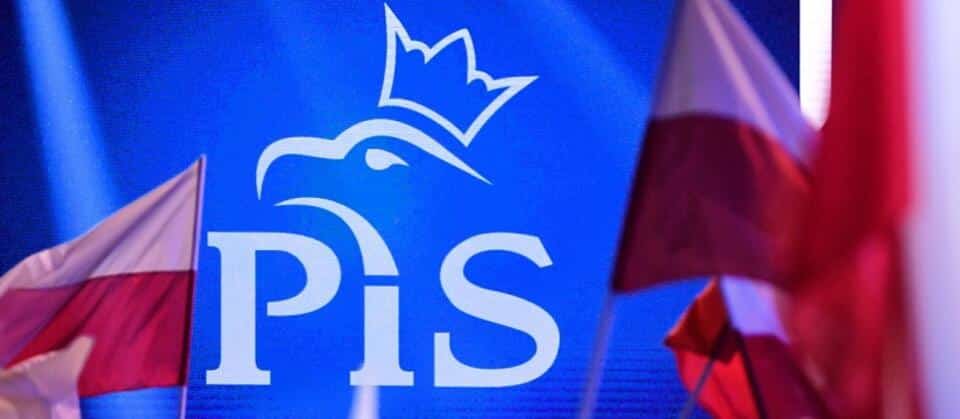Table of Contents
In the calls from Polish officials to Ukrainians to show their “gratitude”, the most offensive thing is that behind the “morality” of such actions lies a political and economic calculation. The louder someone appeals to ethics, the more they actually want to profit from it.
“In Poland, there are loud voices of disapproval and solidarity with Ukraine, such as the position of former Prime Minister Włodzimierz Cimoszewicz. Also, the former Minister of Foreign Affairs in the government of the current Prime Minister Mateusz Morawiecki used many explicit words regarding the policy of the Polish authorities (political racketeering), which caused outrage in the ruling party. After the reactions of the politicians from the Law and Justice party and their supporters, it is still visible that it had an impact,” says Polish politician and journalist of Ukrainian origin, Mirosław Czech, who was an advisor to the Ukrainian government from 2016 to 2019.
It seems that the Law and Justice party is attempting to use its relations with Ukraine in its internal political games. On Thursday, the internet portal Wirtualna Polska, and on Friday, Gazeta Wyborcza, wrote about this: the anti-Ukrainian rhetoric is not coincidental but a conscious attempt to capture the right-wing electorate. Because it’s their votes that can decide the results of the upcoming elections.
What is the real background of this political shift?
Mirosław Czech: Such deterioration of Polish-Ukrainian relations is absurd. Only Russia will benefit from this.
Edward Krzemien, OKO.press: Ukraine should value Poland’s contribution to the war and its assistance to Ukraine more — said the Minister in the Chancellery of the President of the Republic of Poland, Marcin Pszydach. Nobody would pay attention to such statements, and most likely, such rhetoric would be attributed to the election campaign that is beginning in Poland. The sharp reaction from the Ukrainian Ministry of Foreign Affairs added fuel to the fire, as it summoned Polish Ambassador Bartosz Cichocki. What could be the reason for such a reaction from the Ukrainian Ministry of Foreign Affairs?
Mirosław Czech: There are actually several reasons. First and foremost, I was surprised that such statements came from the mouth of an important official in the office of the President of Poland, Andrzej Duda, who, as it seems to me, has excellent working and personal relations with President Zelenskyy. Therefore, there should have been communication channels and understanding in place to avoid such incidents and tensions.
The question arises, why didn’t such channels work?
Secondly, a day later, the accusation of Minister Pszydach about the “ungrateful” Ukraine was further developed by Deputy Minister of Foreign Affairs Paweł Jabłoński, who added that Poland is dissatisfied with the actions of Ukrainian diplomacy. Moreover, he mentioned two more issues on which there is no agreement between Ukraine and Poland. The first is the issue of Poland’s embargo on Ukrainian grain, and the second is the assessment of the Volyn Tragedy in 1943.
We can discuss the latter problem another time.
Instead, the first question is very painful and urgent, especially in Ukraine.
The embargo imposed by the EU on the import of four types of Ukrainian grains (wheat, sunflower, rapeseed, and sunflower oil), granted to five EU countries by the European Commission, will end on September 15. Poland is concerned about its own grain supply, while Russia is destroying Ukrainian storage facilities.
And all of this is happening at a time when Russia is exiting from the grain agreement, shelling and destroying Ukrainian infrastructure, ports, and grain storage facilities.
Russia officially exited the grain agreement on July 18, and on July 19, Prime Minister Mateusz Morawiecki stated that Poland would unilaterally introduce an embargo if the European Commission does not extend it. This, in my opinion, is the reason for the significant concerns from Ukrainian officials, who find themselves in a very difficult situation in such a case, as they must prioritize their country’s interests, and that’s understandable.
Putin is now heading to meet with President Erdogan to discuss the resumption of grain transportation via the Black Sea. However, the demands that Russia is making are unacceptable for Ukraine.
The Ukrainian government’s reaction to the issues concerning the transportation of grains through Poland is nervous, which is evident given the magnitude and sensitivity of this matter. However, Ukrainian politicians and diplomats should take into consideration the current situation of the Polish political scene in the context of the ongoing pre-election campaign. They should bypass Pszydach’s statements and initiate a dialogue on a different level. Yet, their reaction triggered an open conflict, which, in turn, the ruling Law and Justice party might exploit in their pre-election campaign.
No, this is not a game involving Poland’s internal affairs. Kyiv understands this well. Ultimately, President Zelenskyy issued a declaration stating that minor and temporary issues should not undermine the Polish-Ukrainian alliance because both Poland and Ukraine form a strong defense shield against Russian aggression.
I believe that summoning the Polish Ambassador by the Ukrainian Ministry of Foreign Affairs was unnecessary.
This triggered the entire conflict.
No, it was just one of the elements of this issue. In response, the Polish side summoned the Ukrainian Ambassador to the Ministry of Foreign Affairs. On the same day, the Belarusian Ambassador was also summoned to express condemnation and protest against Russian aggression in Ukraine, as well as Belarus’s role in escalating this war.
The tension in Polish-Ukrainian relations is absurd. I believe that the presidents of both countries should take control of this matter.
On the other hand, if we talk about the idea that the import of Ukrainian grains destabilized the grain product market in Poland, it’s a complete fabrication. Calculations have shown that it had no impact whatsoever.
Based on Polish financial documents, EU Commissioner Janusz Wojciechowski (appointed by the Law and Justice party, responsible for agriculture) presented data that in 2022, half a million tons of wheat, 1.9 million tons of corn, over 650,000 tons of rapeseed, and 400,000 tons of sunflower oil were imported from Ukraine to Poland.
See also: Poland chooses conflict: why relations with Ukraine’s key ally have deteriorated
On the other hand, transit saw the passage of 230,000 tons of corn, 60,000 tons of wheat, and 40,000 tons of rapeseed.
The Law and Justice party promised farmers an increase in grain prices. It did not fulfill its promises
In Poland, a clamor arose that “Ukrainian grain flooded the Polish market,” and up to 4 million tons were accumulated in silos. Marek Sawicki, former Minister of Agriculture from the Polish Peasant Party, even stated that it could be as much as 7-9 million tons.
And only in half-whispers did they acknowledge that grain from Polish farmers and agricultural producers was stored in the silos. But where did it come from? It was because they believed the assurances of the former Deputy Prime Minister from the Law and Justice party, who after the 2022 harvest advised farmers not to sell because prices would rise in winter. Despite already high prices, considering the blockade of Ukrainian ports by Russia.
But after the grain agreement between Ukraine, the UN, and Turkey on one side, and Russia, the UN, and Turkey on the other, prices decreased. This raised certain concerns, as farmers had already counted on the money from their sales, but the goods remained unsold, potentially causing losses. Thus, they decided to use the old method of “peasant complaining”: they found a culprit, created media buzz, and in turn aimed to negotiate compensation, or in other words, subsidies.
Immediately, AgroUnia (a conservative agrarian political movement in Poland) emerged, protests appeared at the border crossings with Ukraine, and the Polish Peasant Party also joined, and everything spun into motion. Media also began to discuss incredible things, such as “contaminated technical grain” from Ukraine that they claimed was added to flour, which was then used to bake bread.
However, these are baseless claims, as besides the loud investigations, nothing was found, or at least there were no cases that exceeded the norm.
And the fact that “Ukrainian companies are deceiving,” even though to this day, the Ministry of Agriculture has not published a list of Polish firms engaged in importing agricultural products from Ukraine. Because Poland is not a lawless field — importing requires permits. Certain institutions are in place, such as customs, the Ministry of Finance, sanitary services, and all of this operates under the supervision of EU institutions.
Tales about Ukrainian honey
It turned out that the hysteria knew no bounds. At the time, I had just returned from Ukraine to Poland, and my mood wasn’t the best. Ukraine was experiencing a harsh winter due to Russian shelling of Ukrainian energy infrastructure. This was when the shelling of Kyiv began with supersonic missiles, and heavy battles were ongoing near Bakhmut.
Wagner’s mercenaries were dying by the thousands, but Ukrainian soldiers were also suffering significant losses. Several funeral processions took place in Lviv every day. Well, I thought to myself, at least Poland stands firmly alongside Ukraine.
And as it turned out, I was wrong. I heard an interview on the radio with former Deputy Prime Minister Janusz Piechociński from the Polish Peasant Party, who warned that Poland had been “flooded” with frozen fruits and honey from Ukraine. According to him, they imported three times more honey than Polish beekeepers produce in a year.
I began to verify that information and it turned out to be a lie. In comparison to 2021, the import of frozen fruits and honey had actually decreased. I was particularly angered by the misinformation about honey, as stories of how it was “flooding” the Polish market were embellished with tales of Ukrainians carrying it in buckets to Poland.
“And for your relatives and loved ones to have to flee the war and carry honey, milk, and other products in buckets,” I said angrily because anyone who crosses the Polish-Ukrainian border knows how meticulously Polish customs officials inspect everything.
What was the reaction from the Ukrainian side?
The Ukrainians found a very simple way. Two months ago, AgroUnia blocked one of the border crossings, repeating the same tune about how “Ukrainian grain and fruits (especially raspberries) flooded the Polish market.”
In turn, Ukrainian dairy producers voiced their protest against the unlimited import of Polish dairy products. In Poland, no one really calculates the amount of agricultural produce and food products they sell in Ukraine, and despite the war, it’s quite substantial.
The Ukrainian scare tactic was successful. Protests from the Polish side disappeared within three minutes.
Credit should be given to the officials of the ruling Law and Justice party who, for a while, tried not to fuel anti-Ukrainian hysteria. Minister of Agriculture Robert Telus debunked the falsehoods in the Sejm.
However, the political decision was quite different. By maintaining its support in rural areas, Law and Justice obtained approval from its leadership to use the anti-Ukrainian card in the game. Moreover, in the case of the “Ukrainian grain,” the anti-Ukrainian stance aligned with anti-European sentiments.
See also: Poland in the crosshairs of the Kremlin: Russia raised the stakes to avoid a total defeat
The European Commission negotiated a solution that must be implemented by September 15, which also includes subsidies for Polish farmers.
In the calls from Polish officials to Ukrainians to show their “gratitude,” the most alarming aspect is that behind the “morality” of such actions lies political and economic calculation. The more someone appeals to ethics, the more they actually want to profit from it.
Elections are approaching, adding emotions, especially since the opposition is constantly playing this tune. The only beneficiary of such a situation is Russia, and it continues to add fuel to the fire. Polish politicians, both the ruling party and the opposition, are falling for this scenario, which is not written in Poland, unfortunately.
Ukrainians have their own understanding of Poland
Is it true that Ukrainians are waiting for the results of the elections in Poland?
If the opposition wins, Ukraine will have much better partners for dialogue than the current team. Perhaps this explains the dynamics by which Zelenskyy and the Ukrainian administration are seeking closer and more decisive contacts with Germany and the US without the involvement of Poland.
I’ve heard about similar theories, especially on right-leaning internet portals. I’m not sure what prevails in them more: an infantile approach to reality or a conscious effort to diminish the favorable attitude towards Ukraine and Ukrainians because the “righteous heart” actually beats from a different, Russian side.
Among all countries, Ukrainians have the most positive attitude towards Poland. All public opinion polls show that President Duda is almost as popular among Ukrainians as President Biden.
But after the recent statement by his advisor, will everything remain the same?
Yes, most people don’t pay much attention to the statements of some advisor, as what matters is what the president says and how he behaves. And Andrzej Duda has remained silent for now.
The thesis that Poland is losing ground because Ukrainians are looking more towards Germany and the US is nonsense. After years of war, especially after February 24, 2022, Ukrainians have become well-acquainted with geography and painfully realize that the “fraternal” Russia is an archenemy, eagerly waiting for an opportunity to destroy Ukraine and Ukrainians. Even from the side of the “more fraternal” Belarus, only death seems to come.
In such a situation, Poland emerges as a savior. And it has proven to be that savior. Ukrainians don’t need to be urged to feel grateful towards Poles and Poland, as they are now filled with gratitude and will continue to cherish it in the future. Unless certain actions lead to Poland becoming a bone of contention for them.
This doesn’t change the fact that Germany holds significant sway over the management of financial aid from the European Union, as well as sanctions and the weapons provided by the Americans. In this situation, Ukrainians perceive what’s obvious.
From this perspective, no one will alter Poland’s role as the rear of the Ukrainian front. When someone claims that this factor has slipped out of the Ukrainian politicians’ focus, they simply don’t understand anything or might be intentionally doing so to disrupt Polish-Ukrainian relations.
Could Zelenskyy not have known about this? It’s impossible.
Could the Ukrainian Ministry of Foreign Affairs summon the Polish Ambassador, and could it be that Zelenskyy didn’t know about it?
I don’t think so, although I wouldn’t overestimate the significance of this fact. Volodymyr Zelenskyy acts impulsively due to his character and the ongoing war in his country, along with challenges like preserving the state, the economy, Western unity, Ukraine’s membership in the EU and NATO.
Perhaps he decided that a strong reaction was necessary to make the Poles realize that such actions resemble Russia’s behavior, which sees Ukrainian grain as unwanted competition.
To reiterate, I’m surprised and concerned about the tension between officials from both administrations. They know each other, have spoken with each other, especially since maintaining communication with foreign counterparts is part of their official duties.
See also: NATO fails the “courage test.” Helicopter invasion of Poland could have serious consequences
Instead of signaling to his Ukrainian counterpart that some gesture from the Ukrainian side was needed in this situation, Minister Marcin Pszydach simply fired a cannon shot, triggering a reaction from Deputy Head of the Office of the President of Ukraine Andrii Sybiha. And that’s where it should have stopped. Summoning the Polish Ambassador to the Ukrainian Ministry of Foreign Affairs was too much.
Poland doesn’t find it crucial to quell this dispute
This could have been resolved if both sides were interested. However, Prime Minister Morawiecki escalated the incident, and President Duda remains silent.
Therefore, the current Polish government’s stance is that Ukraine should yield. Only from the Ukrainian side, President Zelenskyy maintains a general position, appealing for the resolution of this conflict. How will it all end? For the Law and Justice party, fueling anti-Ukrainian sentiments becomes another attempt to find a narrative for the upcoming election campaign.
I would like to say that everyone should take a step back. However, it probably won’t work that way, as an incident has occurred, the Polish side has taken a firm stance, and simultaneously, a ruthless election campaign is ongoing. It is up to the Ukrainians to cool down this whole situation, which they are actually doing.
It is important that in Poland, there are loud voices of disapproval and solidarity with Ukraine, such as the position of former Prime Minister Włodzimierz Cimoszewicz. Also, the former Minister of Foreign Affairs in the government of current Prime Minister Mateusz Morawiecki used many frank words about the policy of the Polish government (political racketeering), which caused outrage within the ruling party.
After the reaction of politicians from the Law and Justice party and their supporters, it is still evident that this had its impact. Because a respected professor, who was a prominent opposition figure during the communist times and has his own credibility, took a stance.
I am very grateful to him for such a firm stance, considering what is happening in Belarus (the presence of Wagner Group mercenaries, manipulation with migrants, violations of airspace by Belarusian helicopters). Playing with morality for the sake of open political and financial interests is not acceptable.
Moreover, in the so-called “wheat case,” there is a consensus among political parties. AgroUnia, the Polish Peasant Party, and Law and Justice have reached an agreement, while the voices of other parties are not as audible or barely audible. Some members of the Civic Platform party in the European Parliament voted against extending duty-free movement for Ukrainian products for the next year.
Do the upcoming presidential elections, scheduled for next year, influence Kyiv’s reaction in this situation?
Is such a sharp reaction from the Ukrainian Ministry of Foreign Affairs driven by the desire to demonstrate that the presidential administration and the government are defending Ukrainian interests against the accusations, and in such a case, they are not even afraid to summon the Polish Ambassador?
No, I don’t believe that presidential or parliamentary elections will take place in Ukraine during the war. This has also been stated by the head of the Ukrainian Parliament and the head of the National Security and Defense Council. How can you organize elections in a country during active hostilities when you have 7 million internally displaced people and 6 million in the European Union?
How to conduct elections, count voters, at least create ballots, carry out election campaigns that inherently involve competition.
If someone shares this opinion, they are either irresponsible or hostile to Ukraine. In any case, the Ukrainian constitution does not allow for parliamentary or presidential elections during martial law. And it is very right.
Ukrainians have several tasks to accomplish, including winning the war with Russia, preserving the economy, which Russia is trying its best to prevent, fulfilling all the conditions for joining the European Union, and implementing the annual plan to receive an invitation from NATO.
They have a lot to do.
Originally posted by Edward Krzemien on OKO.press. Translated and edited by the UaPosition – Ukrainian news and analytics website




